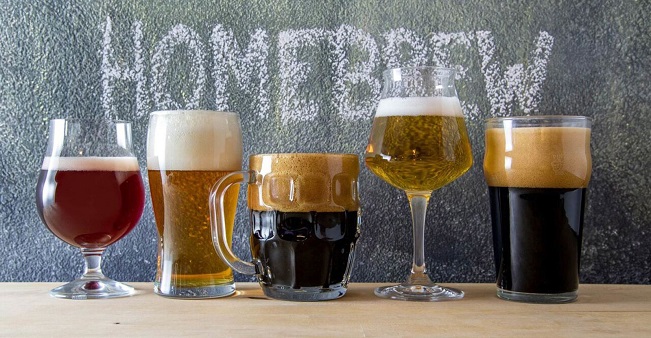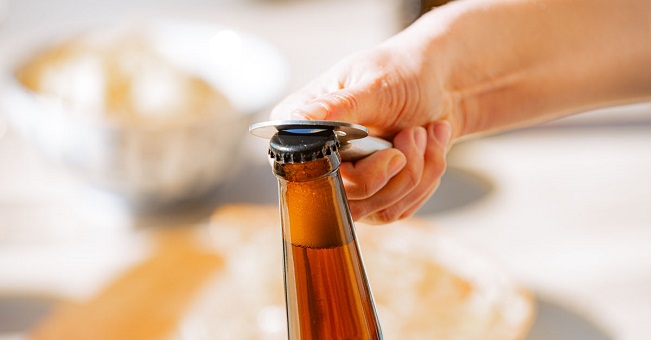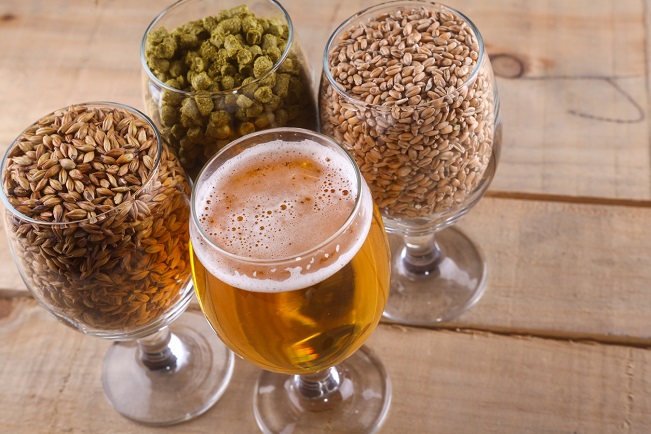Humans might have been consuming alcohol since always. Even in Paleolithic times, they would ferment their own primitive alcoholic drinks. However, before winemaking was so approachable and a complete home brew kit or malt extracts ever existed, three prerequisites had to be met for brewing: the availability of suitable grains, a controllable source of energy or fire and suitable brewing vessels. This couldn’t have happened earlier than 5000 BC. So, you could say that producing alcohol is a tale of both humanity’s scientific and technological advancement and of people themselves.
Do you want to join the history of alcohol production by making your beer? You couldn’t have picked a better time to do it!

What Do I Need to Homebrew Beer?
First and foremost, you need brewing equipment. As Benjamin Franklin once said, the best investment is in the tools of one’s own trade. Nowadays you don’t have to overthink things as a complete home brew kit is made to make your brewing easier. The essential brewing equipment includes:
- Fermenter – A fermenting vessel barrel with a tap, airlock and thermometer that can hold 20-30 L. This is where the magic happens.
- Hydrometer and Test Flask – To help you ensure fermentation is complete before bottling.
- Sanitise – Proper cleaning is essentials to protect yourself and your batch from microorganisms and infections. Always choose eco-cleaning products when you can.
- Bottle Brush – Scrub all bottles thoroughly before beginning your process, especially the old ones you want to reuse.
- Mixing Paddle – You might think that you can pull it off with a regular cooking spoon but for a fermenting vessel that’s around 30 L, clearly, you’ll need a much bigger tool to help mix and dissolve the brewing malts before adding yeast.
- Carbonation drops – These create secondary bottle carbonation or fermentation, adding a bit of sparkle and a lively feel.
- Bottling valve – Used for quick and easy bottling.
- Hand capper – Allowing you to tightly bottle your beer.

You could steep crushed malted grain in hot water to extract sugar, called all-grain brewing, or you could do extract brewing, which is dissolving malt syrup or powdered malt sugar in hot water.
Although all-grain brewing gives you more flexibility and allows creativity, it requires more equipment. Extract brewing on the other hand is quicker and cheaper. However, if you’re really serious and passionate about brewing, it’s smarter to invest upfront in all-grain brewing equipment as it’s superior and can also be used for both processes.
Last but not least, you need the basic beer ingredients: malt, hops, yeast and water. You can start experimenting and making your own unique craft beer as you start getting more comfortable with the process. Then, with untied hands, you can explore the world of homebrew beer.
Why Do People Make Their Own Beer?
Variety and Health
Homebrewers believe that “real beer” can be made at home, even in a small apartment. This shouldn’t surprise you, given that it has been brewed for hundreds of years by people with far inferior equipment than the complete home brew kit available today.
Outside of the Budweiser, Heineken, Amstel, Carlsberg, Coopers and Victoria bitter huge bubble, there exists a community of beer drinkers who would be appalled if you dare to ask is homebrew beer good. After all, they support a movement loosely called the “Real Beer Movement” due to their preference for a quality product.
The combination of yeasty enzymes, sugars, flavonoids and countless other chemicals which swirl around together to make your beer are subject to exploitation when it comes to commercial beer production. Industrial and chemical processes intended for mass production i.e. the identical output of enzymes, yeasts and other microorganisms, is not the way to make the best products. After all, one of the beauties of fermentation is the inability to predict it completely and being in for a surprise. As nature intended, not a single process is exactly the same and neither should your brewing be.
Hops, the most recent permanent addition to the beer recipe, only replaced other herbs during the Medieval Age. Ash leaves, yarrow, rosemary, coriander, bog myrtle, nettles, sage, dandelion, heather, chamomile and raw honey were used, one of the reasons why is homebrew beer healthier.
The people of Britain, Germany, and Belgium and recently Japan “take their beer seriously” due to their long and rich history, culture and traditions. This has led to setting certain standards on ingredient purity, where only barley and hops are recognized as the real deal. However, there are no commercial varieties of hops that are resistant to pests which has led to increased use of herbicides and pesticides.
By making your own beer, you get to choose what goes inside the fermenter and eventually your stomach. That freedom is both liberating and rewarding. Furthermore, by not using ultrafiltration systems, you get to spare some of the nutrients that would go to waste in a mass production process. After all, beer is still a source of fibres and vitamins.

Having a Cool Hobby
Clearly, making your own alcohol is kind of impressive, even if the process isn’t that hard to begin with. Firstly, it shows passion and dedication and a spirit that prefers finesse and specificity instead of “cookie-cutter” options. Secondly, it brings you one step closer to starting your own bar. Last but not least, everyone loves that guy that brings the beer cag to the party, especially when it’s homemade. Everyone also loves the guy with his own bar.
Being Part of a Community
Talking about homebrew beer makes a great party conversation sometimes but you should reserve going into the details with your fellow brewers, the ones who truly understand your passion. Interestingly, there are quite a few.
Homebrewing is an excellent way to meet new people, share experiences and ideas about something that both relaxes and nourishes you. Thus, with the power of the Internet, you’re now able to be part of many brewing forums, clubs and communities, whether local or global.
If you are one of those who also take their beer seriously, you could even compete in the Australian Amateur Brewing Championships. On the other side of the spectrum, it could just be you and your best friend in your garage on a Sunday, cracking one open as you make another. Either way, brewing is a great satisfying and social activity.


























